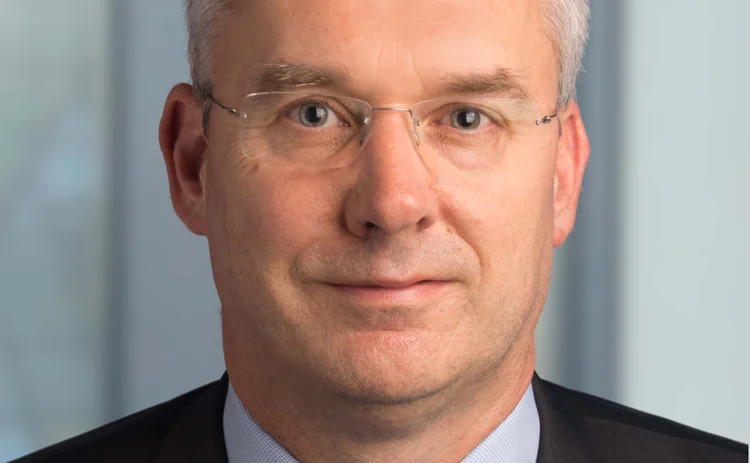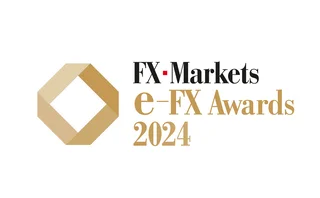
AWARDS Barclays named best bank for FX in London

The past couple of years have been a period of transition for Barclays’s foreign exchange business. During that time the bank has shifted its focus from being a type of FX supermarket with the goal of having as many clients as possible on its platform to one geared towards a core set of clients who make sense for the company.
Over the past 12 months, Barclays has dedicated substantial resources to the FX business, says James Hassett, the bank’s global head of FX trading. “We focused on getting more resources into the business to provide a more complete service to our clients that is more relevant to them.”
“We tackled our pricing and looked at our risk appetite to be very competitive across the wider group of clients. We increased our technology spend on the areas that are impactful to our clients in improving their access to the market or their view of liquidity. And, finally, we hired people in sales and trading to make sure we were servicing as broad a client base as possible, both in London and globally,” he says.
Still, the primary aim is no longer market share. Instead, Barclays wants to become the most respected and trusted bank in foreign exchange. As such, transparency has become the central tenet in achieving this ambition.
“The journey to greater transparency is really appreciated by clients, who tell us we’re one of the few banks to communicate precisely on the various costs associated with a transaction,” says Rudi Alexis, head of corporate FX distribution for Europe, the Middle East and Africa at Barclays.
Barclays is committed to London as a dealing centre and much of the FX activity is going to remain in London
James Hassett, Barclays
Barclays, which won Best Bank for FX in London and Best Bank for GBP/USD at the 2017 FX Week Best Banks Awards, started down this journey in 2014. The following year was one of transition, during which the bank was compelled to optimise capital allocation in a capital-constrained environment, while 2016 became the year of market share ‘re-conquest’ for its FX business.
“2017 saw a continuation and acceleration of our journey in investing in our strategy, regaining market share and improving transparency – something that has brought us a lot of kudos with clients,” says Alexis.While the investment in personnel and technology might not have had its full impact as yet, Hassett says Barclays is determined to continue down that path over the coming 12 months. The bank is also determined to maintain its strong electronic offering, sound appetite for risk and solid commitment to develop its Barx platform.
Hassett says that while electronic trading has gained in importance in recent years, there remains a client base that demands access to the personalised service of voice trading. He estimates the volume of execution carried out through voice trading to have stabilised at about 20%.
Understanding clients’ needs
“Clients have a selection of needs,” he says. “We have a portfolio of products and services made available to them, and we help them understand what each of these channels can do. Depending on their view of the market and what they are trying to achieve, they have a spectrum of ways to execute and we look to cater to that.”
As such, Barclays tailors its services to clients in the worlds of corporates, hedge funds, real money and banks, with an even market share across these segments in various geographies.
Hassett says Barclays is unwavering in its commitment to sterling as a currency and to London as a dealing centre, come what may in light of Brexit. “Being a UK bank, cable is a big focus for us; not only for our clients, but in the way we structure our trading and sales resources. We view it as a core part of what we do on the London desk,” he says.
While negotiations rumble on between the UK and its European counterparts, Barclays has formulated a plan that will enable it to service European clients in the same way as it has always done, whatever the outcome of the Brexit talks.
“Barclays is committed to London as a dealing centre and much of the FX activity is going to remain in London. However, we need to meet our regulatory obligations and service our clients throughout Europe, and we’re committed to doing that,” adds Hassett.
Further reading
Only users who have a paid subscription or are part of a corporate subscription are able to print or copy content.
To access these options, along with all other subscription benefits, please contact customer services - www.fx-markets.com/static/contact-us, or view our subscription options here: https://subscriptions.fx-markets.com/subscribe
You are currently unable to print this content. Please contact customer services - www.fx-markets.com/static/contact-us to find out more.
You are currently unable to copy this content. Please contact info@fx-markets.com to find out more.
Copyright Infopro Digital Limited. All rights reserved.
As outlined in our terms and conditions, https://www.infopro-digital.com/terms-and-conditions/subscriptions/ (point 2.4), printing is limited to a single copy.
If you would like to purchase additional rights please email info@fx-markets.com
Copyright Infopro Digital Limited. All rights reserved.
You may share this content using our article tools. As outlined in our terms and conditions, https://www.infopro-digital.com/terms-and-conditions/subscriptions/ (clause 2.4), an Authorised User may only make one copy of the materials for their own personal use. You must also comply with the restrictions in clause 2.5.
If you would like to purchase additional rights please email info@fx-markets.com
More on Awards
J.P. Morgan brings greater transparency to the overlay space
Demand for J.P. Morgan’s FX overlay market services has risen significantly as market participants navigate the hedging and execution complexities of the market
Best prime-of-prime broker: Saxo
With its well-rounded offering and solid balance sheet, Saxo stood out as a trusted liquidity partner, regardless of market conditions
OSTTRA tackles FX risk with new settlement orchestration and expanded optimisation tools
OSTTRA has added settlement orchestration to its suite of FX services to help clients optimise their derivatives portfolios and tackle critical challenges in the market
Best trading technology for FX: smartTrade Technologies
As sell-side market participants more readily accept the integration of machine learning and AI into their processes, smartTrade Technologies unveils advanced services and modules that provide clients with powerful tools to maximise trading efficiency
Best liquidity aggregation service: smartTrade Technologies
With more sophisticated workflows at their fingertips, second-tier market participants are capitalising on smartTrade Technologies’ bespoke services and modules to gain a competitive edge
e-FX awards 2024: The winners
JP Morgan takes home a record five wins, while BNP, DB and NatWest have two each
CME Group bags top awards for FX derivatives and spot
Amid bouts of Apac volatility, market participants tap into CME Group’s deep pools of FX liquidity, seeking certainty in times of economic stress
Best trading platform for retail: OCBC Bank
OCBC diversifies its FX offering with more currencies and 24/7 trading to meet the increasingly sophisticated needs of retail and SME clients







